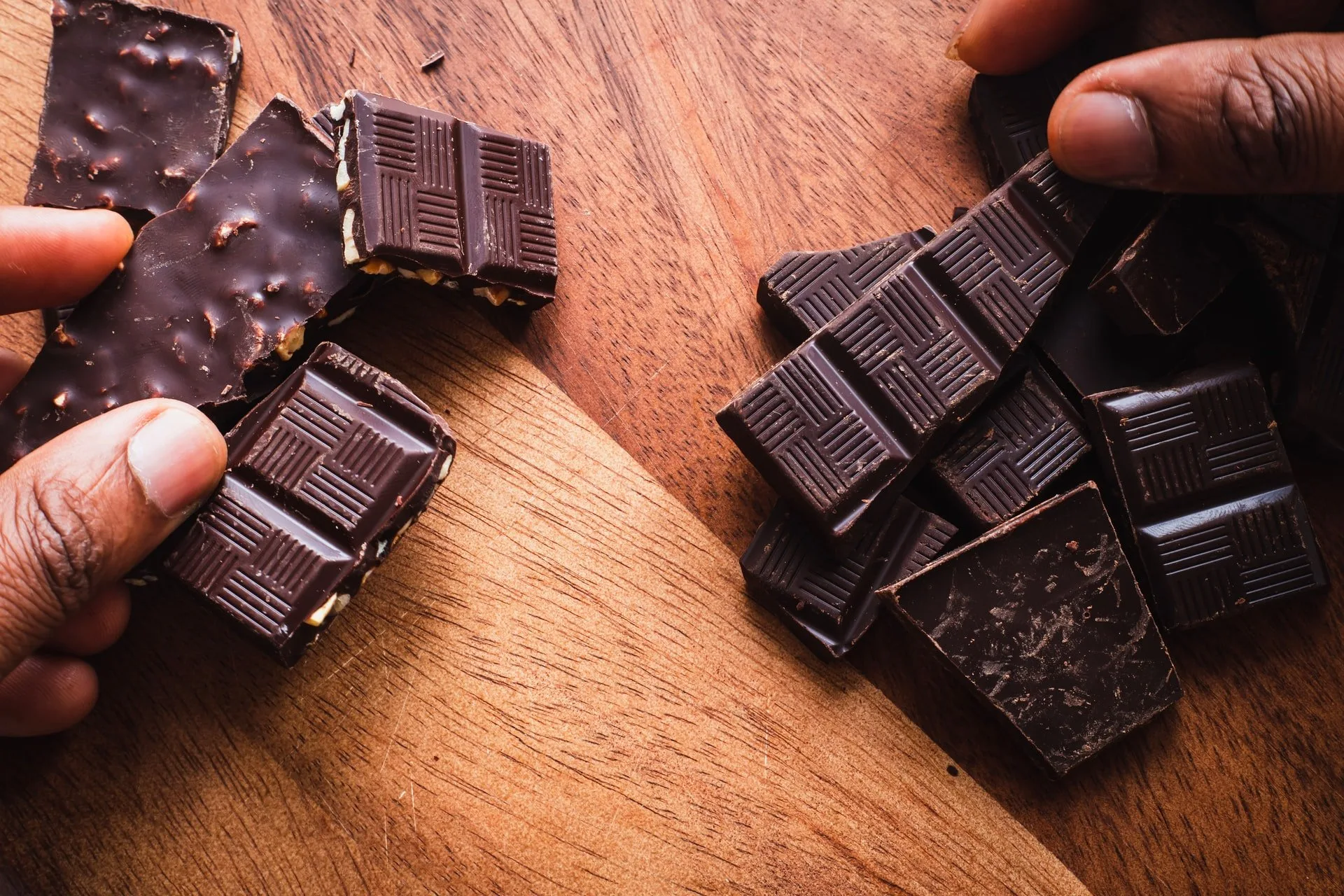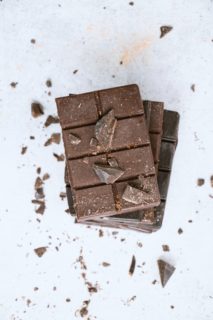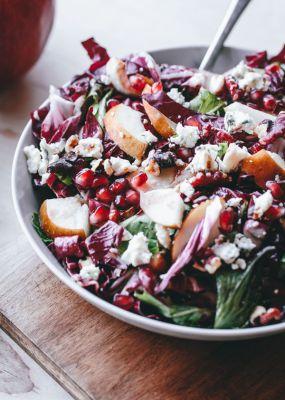Mmm… chocolate. Even the mention of it is sweet. However, its impact on our waistline is not. Chocolate is the ultimate indulgence, yet despite its many benefits, we may still look at it as a guilty pleasure that we really shouldn’t be indulging in. That said, you may be surprised to learn that eating a little chocolate now and then may be exactly what you need to do if you want to keep that lockdown weight off.
You read that right. While it’s more frequently associated with weight gain, there are a few ways that your favorite dark chocolate can help you reach your weight loss goals, and here’s how.
How does dark chocolate help with weight loss?
1. It reduces cravings
Our eating habits have definitely been affected, what with us spending so much time inside. In fact, it seems that our cravings have increased, and we are constantly hungry for sweet, salty, and fatty foods as they will provide some great relief, albeit not for our health.
Thankfully, chocolate can help satisfy these cravings and stop you from binging on unhealthy snacks. In fact, a study from the University of Copenhagen found that dark chocolate helped to lessen cravings for sweet, salty, and fatty foods, which in turn may help you keep your weight down.

Photo by David Greenwood-Haigh on Unsplash
2. It reduces body fat
Dark chocolate is rich in flavonoids, which are a group of bioactive compounds naturally found in raw cocoa beans.
According to an animal study published in the American Journal of Clinical Nutrition, women who consumed a flavonoid-rich diet had lower central body fat.
3. It reduces inflammation
Yes, inflammation is the body’s way of protecting itself but when this inflammation becomes chronic, the body begins to suffer as it triggers the formation of many chronic diseases, such as cancer and heart disease.
In addition, chronic inflammation can also increase insulin resistance, which in turn interferes with feelings of hunger, which then causes one to overeat, leading to weight gain.
There are many ways to control inflammation, and one way would be to munch on some dark chocolate. This is because dark chocolate is rich in flavanols and these compounds contain anti-inflammatory properties(1).
4. It controls appetite
As mentioned, chronic inflammation can trigger the body into overproducing the hunger hormone ghrelin, which then causes us to overeat. However, it appears that nibbling on a chocolate bar may help to control appetite and promote the feeling of satiety.
According to a study from Regulatory Peptides, smelling and eating dark chocolate was found to help decrease appetite as well as reduce levels of ghrelin. Additionally, a separate study found that dark chocolate caused participants to consumed 17% fewer calories at a subsequent meal when compared to participants who ate milk chocolate.
5. It boosts metabolism
Dark chocolate is rich in plant-based fats known as monounsaturated fats (MUFAs) and research has suggested that eating these fats can help to boost metabolism, which in turn helps the body burn calories and fat.

6. It reduces stress
We’re all under a lot of stress right now and it’s obvious that a lot of us may be stress-eating. This is because high-stress levels cause cortisol levels to rise and this spike increases our appetite and before we know it, we’re drowning our emotions in fast food.
To avoid this, it’s important to practice stress management. You may want to include chocolate in your plans. This is because eating dark chocolate increases the levels of serotonin in the brain, which is a chemical responsible for boosting our mood and alleviating the feeling of stress. It’s no wonder that a study published in the International Journal of Health Sciences found that after eating 40 grams of dark chocolate every day for a period of 2 weeks, the participants reported feeling less stressed and anxious.
The not so sweet side
Yes, dark chocolate may help provide a few health benefits, but the fact of the matter is, it’s still chocolate.
Dark chocolate is still quite high in both fat and calories. Also, some manufacturers even include added sugar in their products and this can be quite harmful to your health. So, while dark chocolate can be included in your weight loss program, it’s important not to go overboard.

Photo by Tetiana Bykovets on Unsplash
How can I safely enjoy dark chocolate?
Firstly, choose a brand that is free or low in added sugar and it should contain at least 70% cocoa. Stay clear of light-colored milk chocolates. They are loaded with sugar and incredibly low in cocoa, making them anything but great for your health.
Secondly, moderation is always important so it’s best to stick to a square of dark chocolate a day.
Want to know more?
Snacking throughout the day is perfectly normal. However, it’s all about what you’re snacking on and how well it fits into your healthy diet. That said, you might be surprised as to what Hollywood actress Kristen Bell says her go-to snack is.
References
Al Sunni, A., & Latif, R. (2014). Effects of chocolate intake on Perceived Stress; a Controlled Clinical Study. International journal of health sciences, 8(4), 393–401.
Ellinger, S., & Stehle, P. (2016). Impact of Cocoa Consumption on Inflammation Processes-A Critical Review of Randomized Controlled Trials. Nutrients, 8(6), 321. https://doi.org/10.3390/nu8060321
Jennings, A., MacGregor, A., Spector, T., & Cassidy, A. (2017). Higher dietary flavonoid intakes are associated with lower objectively measured body composition in women: evidence from discordant monozygotic twins. The American journal of clinical nutrition, 105(3), 626–634. https://doi.org/10.3945/ajcn.116.144394
Massolt, E. T., van Haard, P. M., Rehfeld, J. F., Posthuma, E. F., van der Veer, E., & Schweitzer, D. H. (2010). Appetite suppression through smelling of dark chocolate correlates with changes in ghrelin in young women. Regulatory peptides, 161(1-3), 81–86. https://doi.org/10.1016/j.regpep.2010.01.005
Sørensen, L. B., & Astrup, A. (2011). Eating dark and milk chocolate: a randomized crossover study of effects on appetite and energy intake. Nutrition & diabetes, 1(12), e21. https://doi.org/10.1038/nutd.2011.17




![women [longevity live]](https://longevitylive.com/wp-content/uploads/2020/01/photo-of-women-walking-down-the-street-1116984-100x100.jpg)










Never thought that dark chocolate could help lose weight. I always thought that sweets and chocolates have sugar that add to unnecessary calories and leads to weight gain, but I guess I was wrong. Thanks for busting a myth for me.